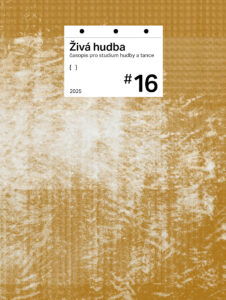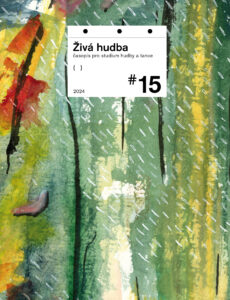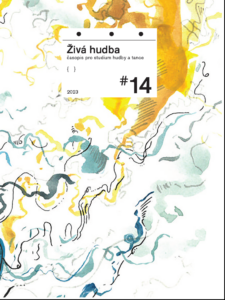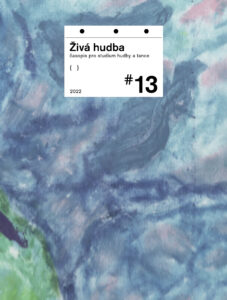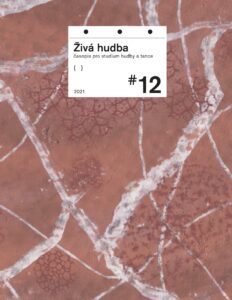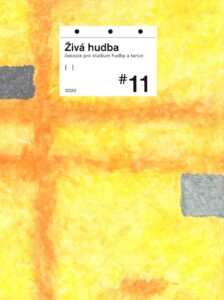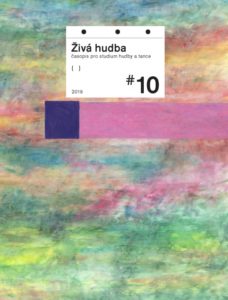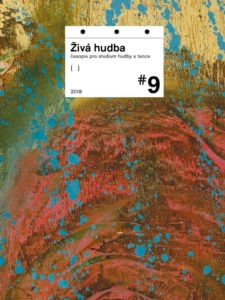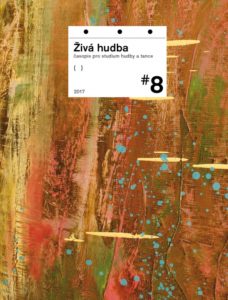Abstrakt The staging of Leoš Janáček´s operas between 1996 and 2012 abroad has certainly shown a rising trend, whereas in the Czech Republic, the frequency of his work at opera theatres has slumped. This observation stems from a comparison of the available databases of the Theatre Institute, the National Theatre in Prague, the National Theatre Brno, www.operabase.com, Universal Edition and www.theoperacritic.com. Already for a long time abroad, Janáček has been the „sure bet“. However, at home since the times of the refusals by Jenufa at the National Theatre, it has not been the case. The present management of the Prague National Theatre has not even tried to hide the fact that fulfilling national cultural heritage is a burden which they have no idea how to deal with. Determining the causes of this Janáčkian paradox of the enthusiastic „full hearted“ acceptance of Janáček across the world and yet the reserved, embarrassed, cool or even objecting approach in CR seems to be a complicated riddle involving elements from the level of staging and economic possibilities to promotion even to the position of culture in contemporary Czech society and tastes of the opera-going audiences taste and ultimately our connection with our national identity. Across the world there is no other analogy of a „little“ country whose composer has so massively succeeded in consistently breaking into the world operatic repertory. Today Janáček is a reliable „export article“ and family silver, not only in comparison with other Czech opera composers but also those from bigger countries with extensive operatic traditions. Thanks to Janáček´s operas, thousands of performers and millions of spectators know the Czech Republic. Since 1989 and the opened borders, we have still not learned how to assert Janáček in the Czech repertory, nor how to „export“ it abroad. This fact has been confirmed by such exceptions as composers Jiří Bělohlávek, Jiří Kout, and from the younger generation Tomáš Netopil or Tomáš Hanus, the soloists Gabriela Beňačková, Peter Straka, Štefan Margita, and also Aleš Briscein or Eva Urbanová. These current developments in the staging and acceptance of Janáček´s operas confirm the Czech national identity dilemma: we enjoy being proud of the successes of Janáček´s operas abroad (and possibly pettily criticizing them), but we have drowned our own creative development and enrichment of our cultural traditions by jealous self-centered provincialism.


Helena Havlíková:
Flight of the imprisoned eagle
Stati a studie / Živá hudba 2012/3 / Publikováno 31. 5. 2012
Abstrakt:
The staging of Leoš Janáček´s operas between 1996 and 2012 abroad has certainly shown a rising trend, whereas in the Czech Republic, the frequency of his work at opera theatres has slumped. This observation stems from a comparison of the available databases of the Theatre Institute, the National Theatre in Prague, the National Theatre Brno, www.operabase.com, Universal Edition and www.theoperacritic.com. Already for a long time abroad, Janáček has been the „sure bet“. However, at home since the times of the refusals by Jenufa at the National Theatre, it has not been the case. The present management of the Prague National Theatre has not even tried to hide the fact that fulfilling national cultural heritage is a burden which they have no idea how to deal with.
Determining the causes of this Janáčkian paradox of the enthusiastic „full hearted“ acceptance of Janáček across the world and yet the reserved, embarrassed, cool or even objecting approach in CR seems to be a complicated riddle involving elements from the level of staging and economic possibilities to promotion even to the position of culture in contemporary Czech society and tastes of the opera-going audiences taste and ultimately our connection with our national identity.
Across the world there is no other analogy of a „little“ country whose composer has so massively succeeded in consistently breaking into the world operatic repertory. Today Janáček is a reliable „export article“ and family silver, not only in comparison with other Czech opera composers but also those from bigger countries with extensive operatic traditions. Thanks to Janáček´s operas, thousands of performers and millions of spectators know the Czech Republic. Since 1989 and the opened borders, we have still not learned how to assert Janáček in the Czech repertory, nor how to „export“ it abroad. This fact has been confirmed by such exceptions as composers Jiří Bělohlávek, Jiří Kout, and from the younger generation Tomáš Netopil or Tomáš Hanus, the soloists Gabriela Beňačková, Peter Straka, Štefan Margita, and also Aleš Briscein or Eva Urbanová. These current developments in the staging and acceptance of Janáček´s operas confirm the Czech national identity dilemma: we enjoy being proud of the successes of Janáček´s operas abroad (and possibly pettily criticizing them), but we have drowned our own creative development and enrichment of our cultural traditions by jealous self-centered provincialism.
Citace:
Helena Havlíková. Flight of the imprisoned eagle. Živá hudba 2012/3. On-line <https://ziva-hudba.info/flight-of-the-imprisoned-eagle/> [24. 2. 2026].
Kopírovat
Vyšlo v časopise
Živá hudba 2012/3
Rubrika: Stati a studie
Publikováno: 31. 5. 2012
PDF: download
Klíčová slova:
historie
Články autora:
Helena Havlíková (1)
Aktuální čísla časopisu můžete koupit v Nakladatelství AMU.
Citace:
Helena Havlíková. Flight of the imprisoned eagle. Živá hudba 2012/3. On-line <https://ziva-hudba.info/flight-of-the-imprisoned-eagle/> [24. 2. 2026].
Kopírovat
Další články
-
Zuzana Hradilová:
Zuzana Hradilová, Funkce baletního mistra – profese, nebo poslání?
Stati a studie | 2019/10 -
Ladislav Beneš:
Ekonomická a organizační náročnost zřízení, provozu a udržení škol…
Stati a studie | 2020/11 -
Richard Cohn:
Uvedení do neoriemannovské teorie: přehled a historický kontext
Materiály | 2019/10 -
Iva Oplištilová:
Martin Iddon: New Music at Darmstadt: Nono, Stockhausen, Cage, and Boulez
Recenze | 2018/9 -
Helena Havlíková:
Let vězněného orla
Stati a studie | 2012/3 -
Monika Štúrová:
Cesta badatele za informacemi aneb pohled na regionální archivy v dnešní době
Stati a studie | 2020/11 -
Matěj Kratochvíl:
Kelly St. Pierre: Bedřich Smetana – myth, music, and propaganda
Recenze | 2018/9 -
Jaromír Havlík:
Na okraj Sinfonie Luciana Beria. Několik analytických poznámek
Stati a studie | 2019/10



